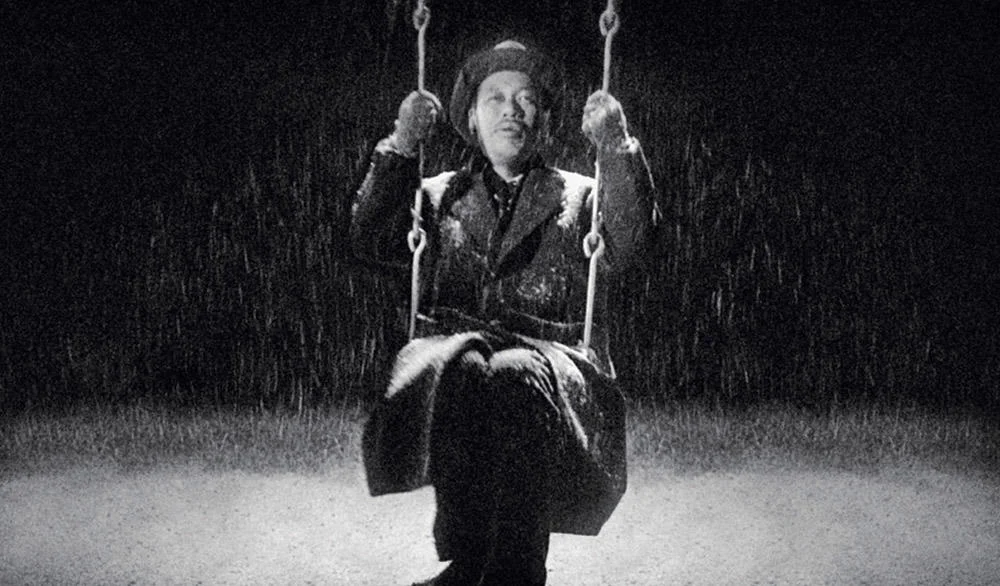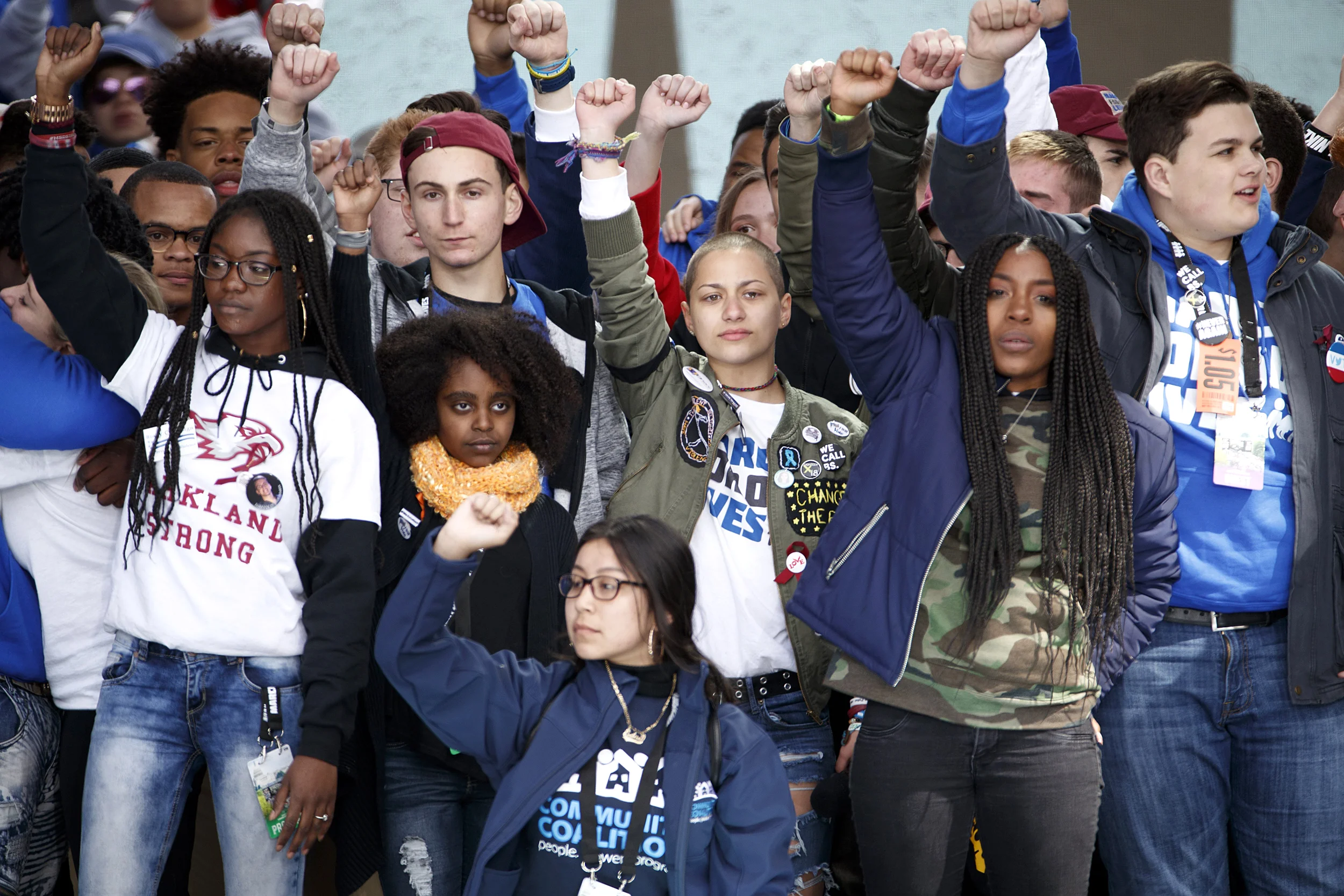Review by Zach Dennis
“We only realize how beautiful life is when we chance upon death.”
The shift takes place about halfway in.
Kanji Watanabe (Takashi Shimura) sits in a booth across from Toyo Odagiri (Miki Odagiri). The two have flourished from a feckless boss-worker relationship into a kinship seared by the idea of enjoying one more day together.
But one more day is all Odagiri can offer now. Unlike Watanabe, she has many more ahead of her. He was recently diagnosed with stomach cancer — a death sentence for most, but a last breath for him.
Before meeting Toyo, there was a drunken novelist he met. The writer didn’t think much of himself, and the idea of a man facing death with 50,000 yen and a desire to truly live was something not even he could cobble into an 100-page novella.
Watanabe found him at a bar — somewhat telling of where the rest of the night would lead — when the old man asks his new companion to lead the way to a night of wilds. He has never had so much as a drink before and with life withering away, it was time to finally discover its fancies. Drink after drink, girl after girl, and song after song, the two unravel onto a Fellini-esque escapade to the reddest of red lights.
It doesn’t work. For Watanabe, a man who hasn’t lived, he knows well enough that his definition isn’t punctuated with boobs and booze. Clandestinely, he runs into the young Toyo as she searches for his home, seeking his seal to finalize her resignation.
For her, life is too short to toil away in a passionless job — exactly the language Watanabe is speaking. The two bond over a meal and then a game of slots, and a stop in the movies. All the while, he watches her. Not with the lust for romance or one more night of passion, but at that unrelenting exuberance for what comes next.
Which makes her dissatisfaction with their final meal so alarming. It perplexes the old man even more as she reveals that no secret creed, key or dogma holds the sacrament to her over abounding joy. “I work and then I go home,” she repeats over and over again to him.
He understands that. If anyone over the course of Ikiru understands the monotony of near robotic hours of work, returning home for a meal and retiring to bed, it is Watanabe. In our introduction to him, there is no gray area for the lack of purpose in his life — it is explicitly spelled out by the film’s narrator— a curious device that seems at first a hindrance to Kurosawa’s ability to invite us into the interiority of his protagonist but becomes more of a flexing id rather than actual overseer of the events of the film.
Shimura uses his eyes — and Kurosawa the close-up — to evoke the deep swell of anxiety and desperation in Watanabe's heart. This friendship with this young woman can not be so easily defined in words, as he notices when he attempts to explain to her, and that lost in translation feels more vulnerable and uncontrollable with every motion towards her.
So when Watanabe aggressively moves towards Toyo, our modern brains recoil almost as quickly as Toyo. Is this it? Is this the breaking point?
In a vast counter to Kurosawa’s Rashomon, which was released two years before, Ikiru posses an exuberant amount of empathy for a two and a half hour film. This empathy seems fixated in a sort of lexicon — more of an indictment on ourselves than on the characters.
But when Watanabe gets closer and closer to Toyo, it isn’t any physical attribute or lustful yearning he sees, it is an epiphany of conscience.
She’s right — I work, and then I go home. But why just that?
For Watanabe, and Kurosawa by extension, this definition doesn’t have to dictate a callousness to life. But that isn’t delineated as the protagonist scampers from the restaurant as the other patrons take part in a rendition of "Happy Birthday."
Because now he is dead.
We meet his family as well as many of his co-workers as they honor their late colleague over food and sake. The deputy mayor is there and mention of a finished park is made, not only as a shining achievement for Watanabe’s department, but also the old man's final spot of rest.
For the next hour or so, Kurosawa lays the foundation for 12 Angry Men as Watanabe’s co-workers glean over his final months as if attempting to decipher a murder. No foul play was committed, just an act of determination towards kindness.
Ohara, one of the older co-workers, will drunkenly interrupt on occasion saying that the whole ordeal makes no sense, that he doesn’t understand, first, how they ended up in this situation, and secondly, why Watanabe morally shifted so drastically in just a few months. The concept of moral obligation is alien to this group of men — bureaucrats, businessmen, politicians — because there seemed to be no tangible gain from it. Watanabe accomplished his goal to help this older women seeking work done in their neighborhood only to die.
In the end, all that was left was a park. A plaything for children.
What many of Watanabe’s coworkers didn’t understand was whether or not he knew beforehand that he had stomach cancer. The coroner made it clear that none of the suspected elements — suicide, frost, etc. — played a role in his passing on the swing set at the park, but rather his medical condition.
His family was unaware — assuming the old man had taken on a young lover rather than a spiritual trek to self-discovery.
So maybe this act — the fight to create this park — was more of a last stand? A final charge as his life withered away? That was one conclusion as the sake glasses were clinked and the men fell on top of each other.
It was February 14, 2018 when 17 students at Stoneman Douglas High School were murdered by gunfire when Nikolas Cruz entered the building armed with a semi-automatic rifle and a vengeance against society. It didn’t take long after the massacre for the survivors to step up and ask for an end to this gun carnage.
Figures such as Emma Gonzalez, David Hogg and more charged the gun rhetoric with a fury unseen to this point. Marches across the nation marked a never again mentality and a number of laws were changes in response.
In Florida, a school safety bill was passed on March 7, raising the minimum age required to buy a rifle from 18 to 21, extending a three-day waiting period for handgun purchases to include long guns and banning bump stocks that allow guns to mimic fully automatic fire.
On June 13 in New Jersey, Gov. Phil Murphy signed a number of gun laws, including one that allows state courts to issue "extreme risk protection orders" temporarily to prohibit people from having or buying firearms if they are deemed to pose a significant risk of injury to themselves or others and another that requires people who aren't licensed firearms dealers to conduct private sales of firearms through licensed retail dealers, who are required to run background checks on buyers.
According to CNN, Vermont Gov. Phil Scott “signed sweeping gun control measures that bans bump stocks, limits rifle magazines to 10 rounds, requires all gun transactions to be facilitated by a licensed dealer and raises the purchase age to 21.”
On the federal level though, a call by the president has been made to ban bump stocks and a majority of House Democrats back a bill written post-Parkland that would ban the sale or possession of certain so-called assault weapons.
No action has been done on it since. But 138 more mass shootings have occurred since Parkland.
One coworker sat quietly off to the side as the other men drunkenly promised to follow the lead of their fallen boss. He spent a few moments during the initial discussion trying to interject but was silenced numerous times by his much more boisterous cohorts.
"Things will change! We will do it for Watanabe!"
As they tangle in drink and self-guilt, he moves his way to the shrine placed at the back of the room for his old boss. He takes a moment before Kurosawa brings us back to the office.
Everything is calm once again — less sake, but the attitudes still the same. To the man’s disbelief, Ono, the man put in charge after Watanabe, passes off a new request that comes into the office. He stands — making a sound to call himself to attention — but as he looks around, he notices that the men around him don’t notice the irony of the situation, nor seem to care.
Days after washing away guilt with rice, koji, yeast and water, singing the praises of the man who sat in the chair before Ono and pledging to rid their stubborn abhorrent behavior with a change of heart...it happened again.
As he leaves work, he passes by the park. Children scream and play on the various amenities and the community goes on — somewhat unbeknownst to the level of work put into creating this small project.
As Watanabe looks into the eyes of Toyo, it isn't the vivacity of youth that awakens his moral identity. His final quest is not about the riches or pleasures of the drinks, flesh and money that the bars, pachinko machines or cabarets offer; nor is it believing tender attention to someone equals moral long term currency.
With him gone now, the children laugh, the parents talk and the community functions in synchronicity. All of the ideal chatter and aspirations can only do so much, in the end, action of concsciousness put up the park.









